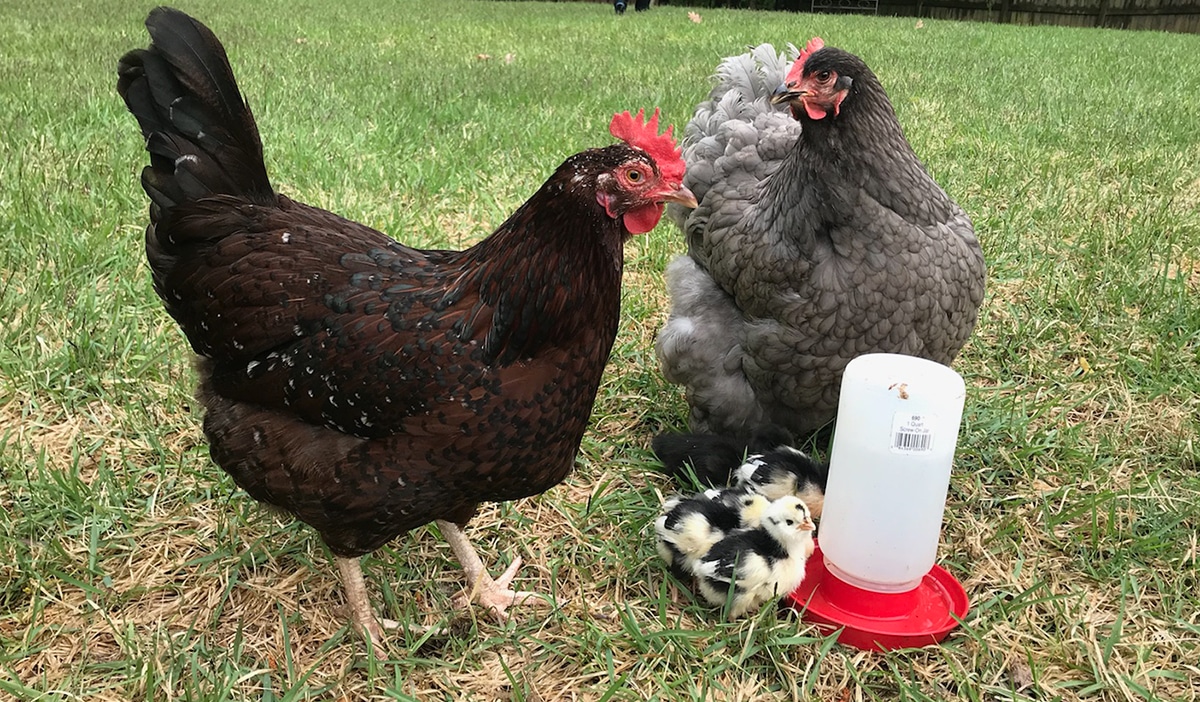
In chicken keeping, you are likely to have a hen go broody on you. For many with small backyard flocks, this isn’t so desirable. The hen stops laying eggs, she barely eats or drinks, she gets growly and pecks at you when you try to get her eggs (whether they are her eggs or not, or even if they aren’t even eggs at all!)
Using a hen’s natural instinct makes new additions much easier to transition into your existing flock.
This method is beneficial because the momma hen will protect the chicks from the others, keep them warm, teach them where to find food, water, and how to spot danger. Using a hen’s natural instinct makes new additions much easier to transition into your existing flock. Another added benefit is it naturally breaks a broody hen while giving your more chickens, because …chicken math.
There are certain types of chickens that are more likely to go broody, although it isn’t an exact science and some hens will just never go broody, while others unexpectedly will.
Our Top 5 Broody Hen Breeds:
- Silkies — these sweet little muppets are the most consistent breed that goes broody. Size doesn’t matter with Silkies, they will hatch any size egg and even care for many other types of fowl.
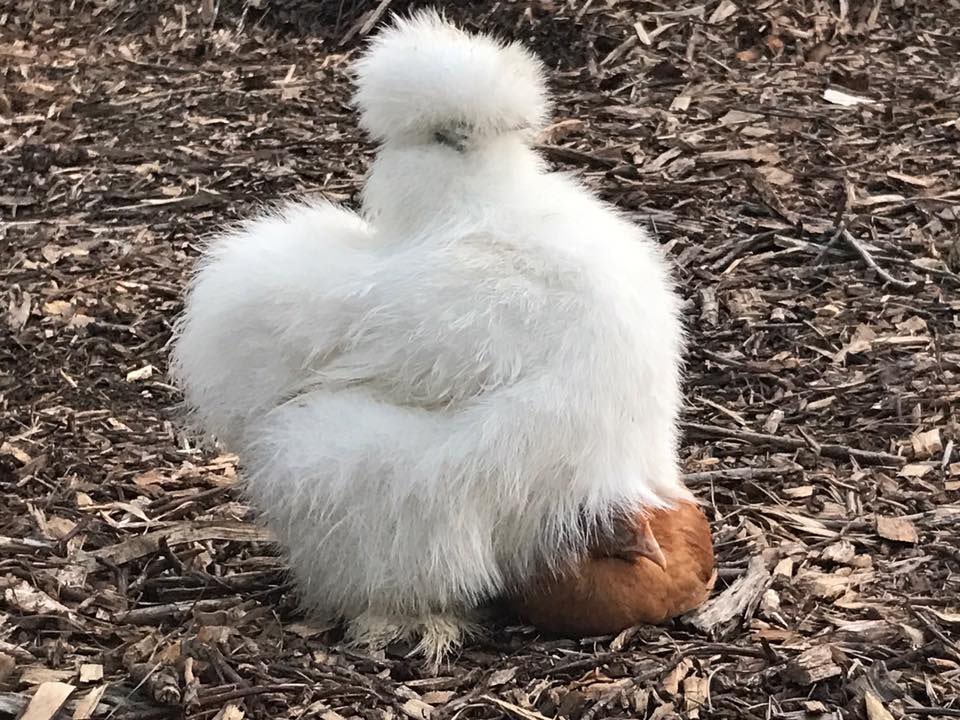
- Cochins — whether big or bantam, the feathery, fluffy, friendly Cochins are known for making great momma hens. All those feathers and floof make for a perfect natural incubator.
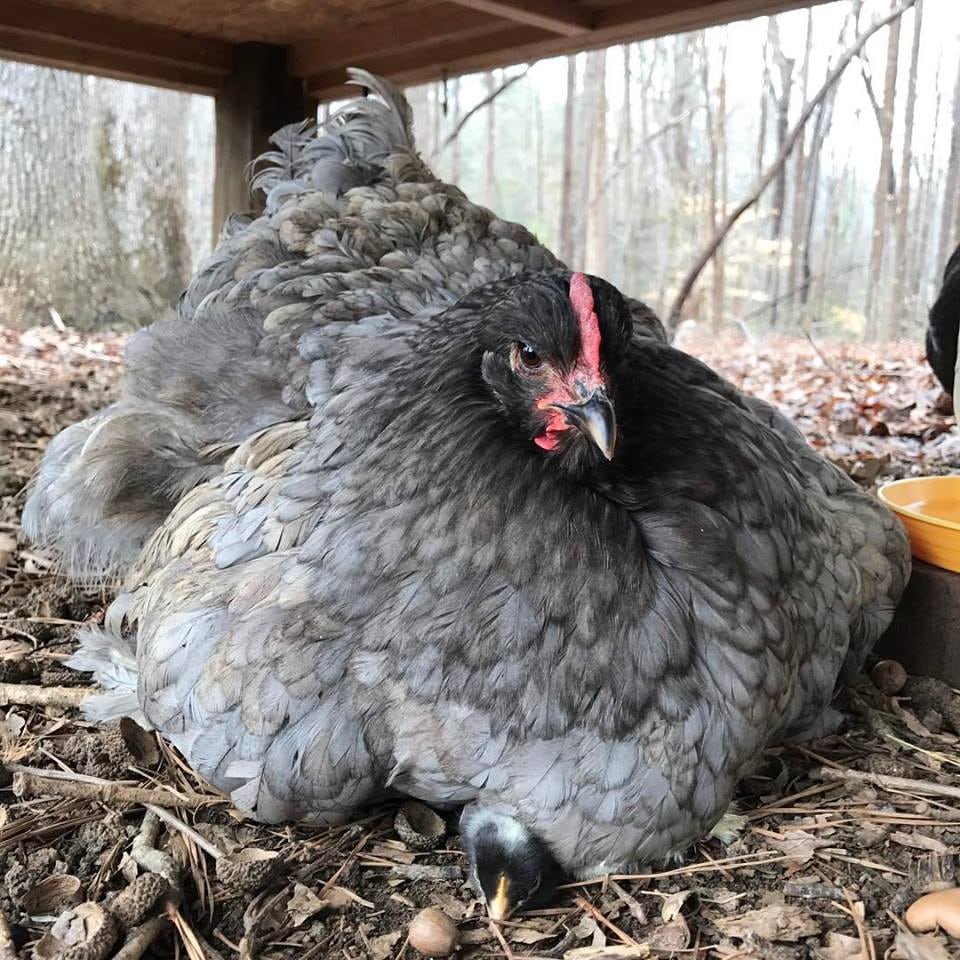
- Buff Orpingtons — Orpingtons, Buffs being the most popular, are sweet, gentle hens that are also fluffy and profusely feathered. Like the Silkies and Cochins, their sweet nature makes them great mommas, but unlike the other two, they are also great egg layers.
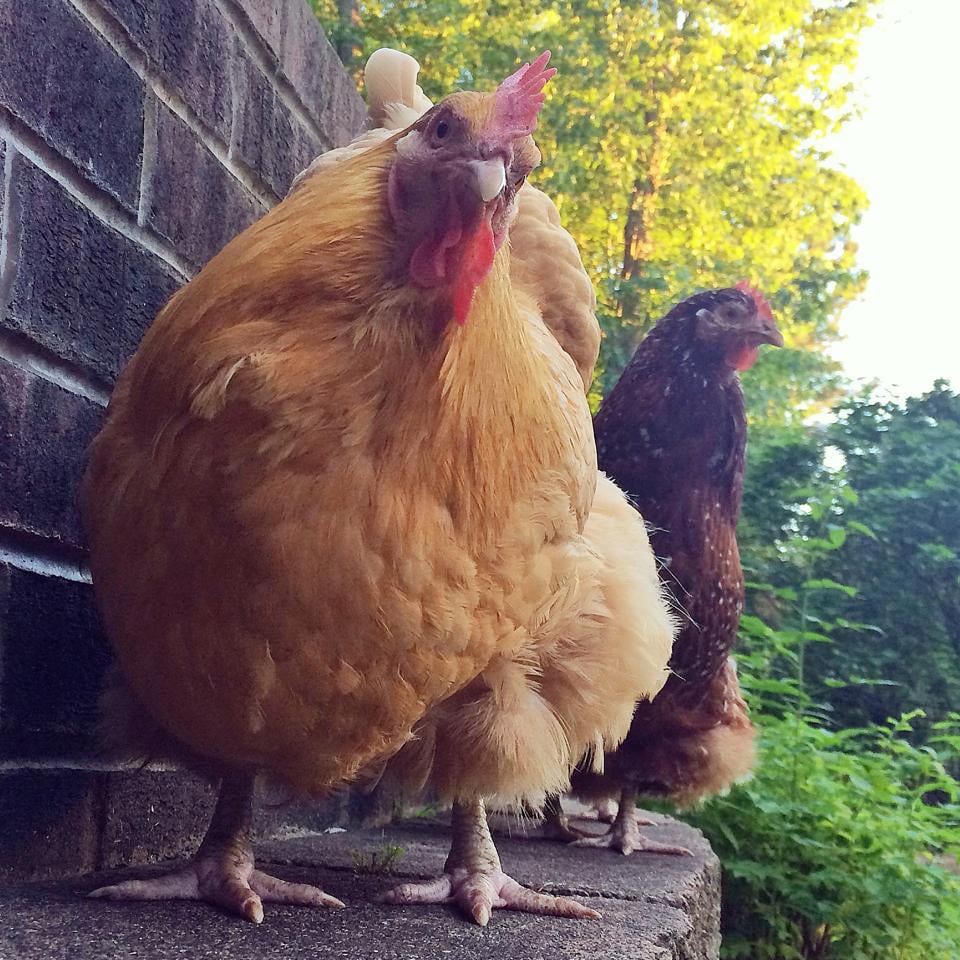
- Brahmas — this large, ancient breed are also sweet and calm and have feathered legs and shanks. (are you seeing the similarities of the broody hens yet?) These gentle giants are a great addition to any flock because they are extremely cold hardy, quiet, good layers, child-friendly, and of course, great brood mothers.
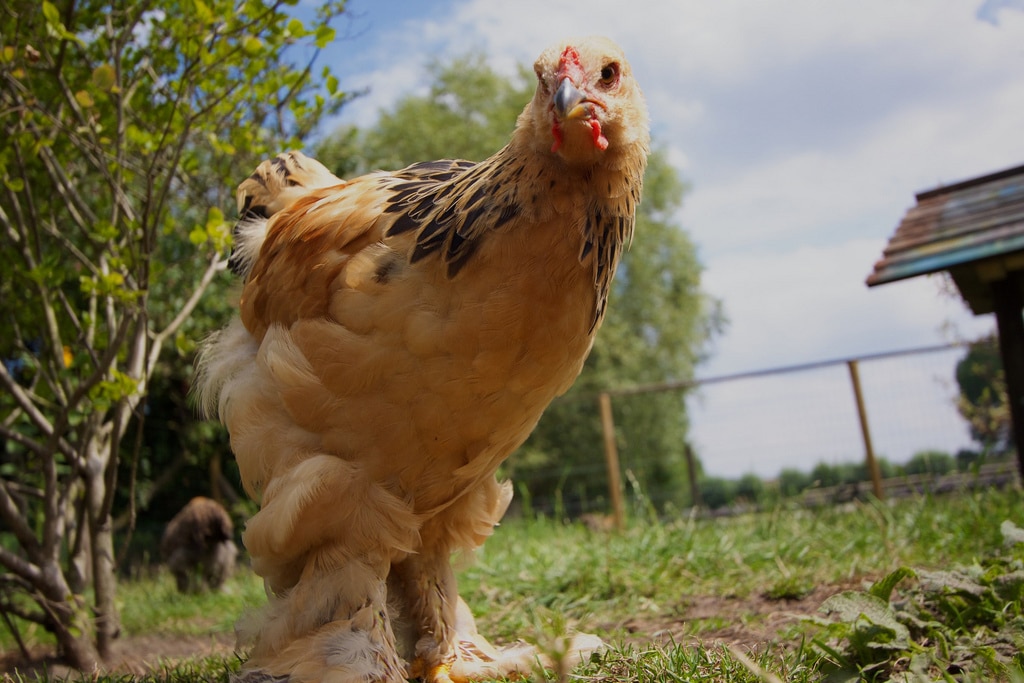
Photo courtesy of flickr Creative Commons: Thomas Vlerick
- Sussex — Sussex are one of the oldest breeds of chickens and are prolific egg layers. The Speckled Sussex are most common and are docile, friendly, and adaptable birds. The Speckled and Light varieties are mostly likely to go broody when the weather warms up.
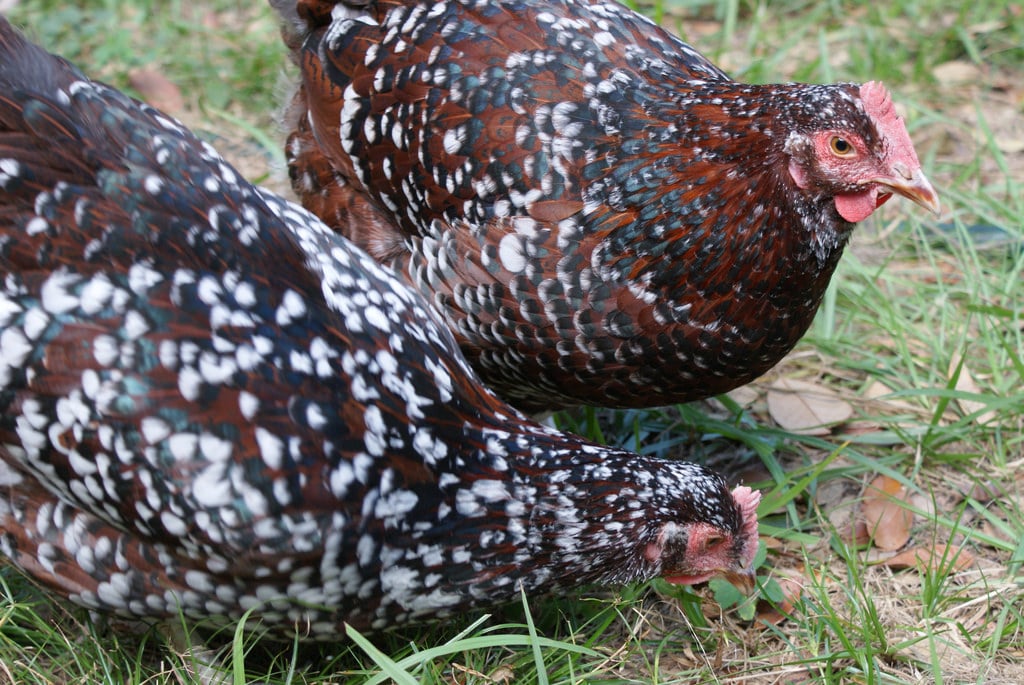
Photo courtesy of flickr Creative Commons: Shooting Chris
Honorable broody mention goes out to Dorkings, an old British breed like the Sussex, but less common in the U.S. and considered a true heritage chicken breed, game hens varieties, many bantam varieties, such as D’uccles, booted bantams, and of course the aforementioned cochin bantams.
So if one of your hens goes broody, it just may be the right time to add to your flock by using your hen’s natural, mothering instinct.
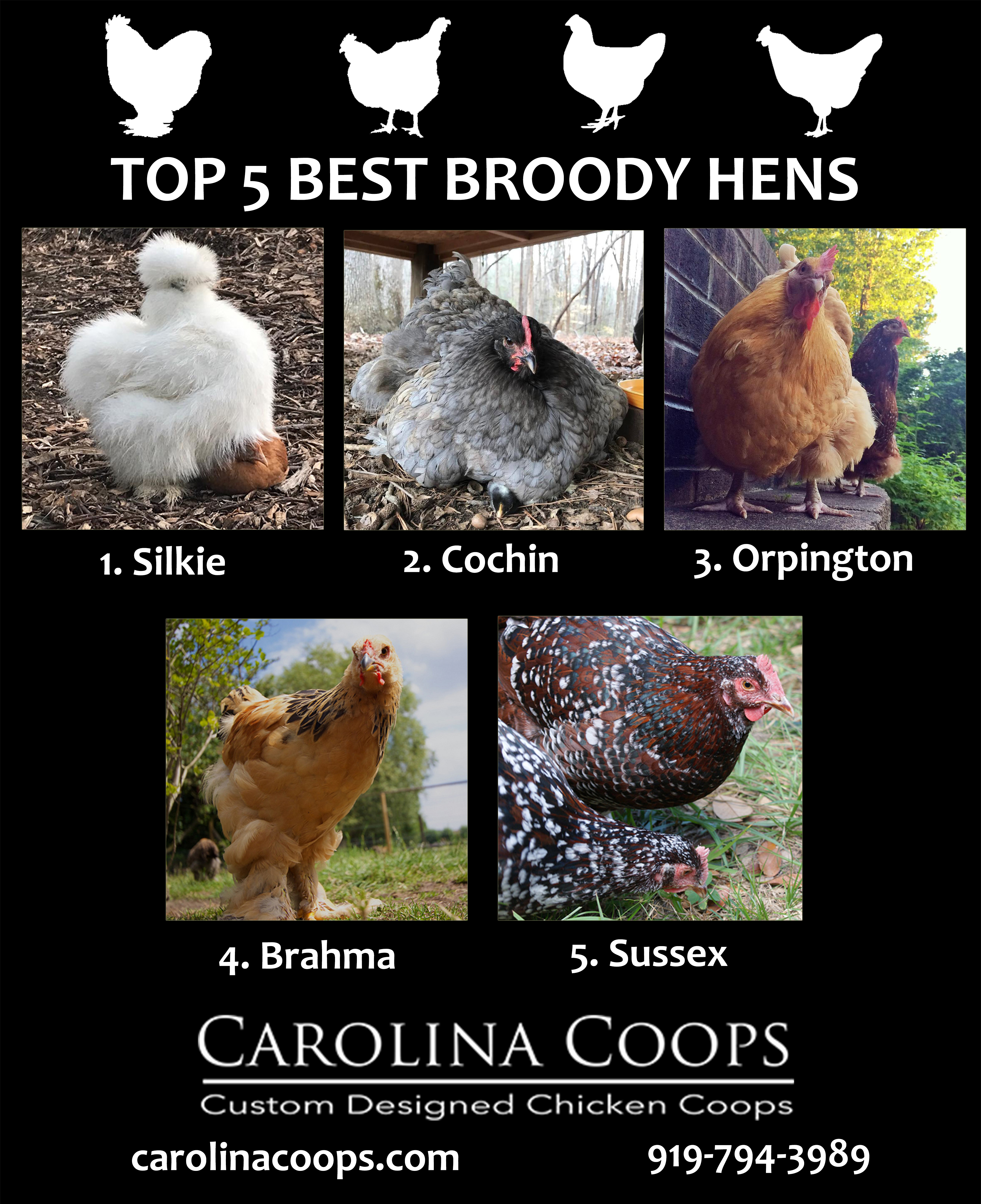
Top 5 Best Broody Hens
In chicken keeping, you are likely to have a hen go broody on you. For many with small backyard flocks, this isn’t so desirable. The hen stops laying eggs, she barely eats or drinks, she gets growly and pecks at you when you try to get her eggs (whether they are her eggs or not, or even if they aren’t even eggs at all!)
This method is beneficial because the momma hen will protect the chicks from the others, keep them warm, teach them where to find food, water, and how to spot danger. Using a hen’s natural instinct makes new additions much easier to transition into your existing flock. Another added benefit is it naturally breaks a broody hen while giving your more chickens, because …chicken math.
There are certain types of chickens that are more likely to go broody, although it isn’t an exact science and some hens will just never go broody, while others unexpectedly will.
Our Top 5 Broody Hen Breeds:
Photo courtesy of flickr Creative Commons: Thomas Vlerick
Photo courtesy of flickr Creative Commons: Shooting Chris
Honorable broody mention goes out to Dorkings, an old British breed like the Sussex, but less common in the U.S. and considered a true heritage chicken breed, game hens varieties, many bantam varieties, such as D’uccles, booted bantams, and of course the aforementioned cochin bantams.
So if one of your hens goes broody, it just may be the right time to add to your flock by using your hen’s natural, mothering instinct.